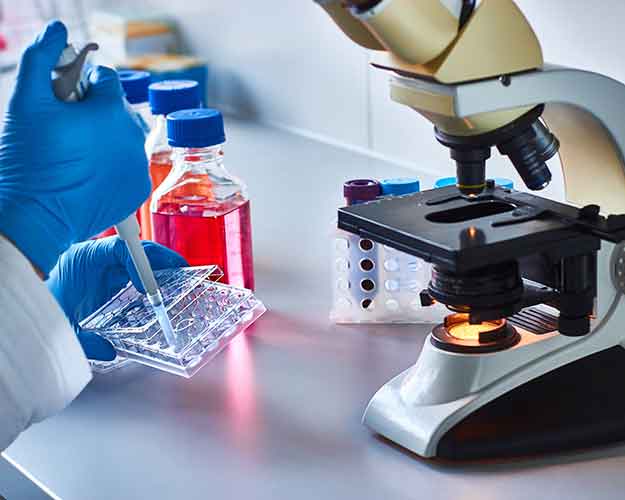Cancers of Unknown Origin
Contact Us
What is a carcinoma of unknown primary?
Cancer can form in any tissue of the body, when abnormal (malignant) cells grow out of control. The primary cancer is the place where the cancer begins to grow. Carcinoma of unknown primary is a rare disease in which cancer cells are found, but it is not known where in the body the cancer first started. The cancer can spread from an unknown site to other parts of the body. The site where the primary cancer first formed is sometimes never identified, for reasons that may include:
- The primary cancer is small and slow growing.
- The primary cancer was destroyed by the body’s own immune system.
- The primary cancer was removed during treatment for another type of cancer or medical condition.
Carcinoma of unknown primary is relatively rare and accounts for approximately two percent of all cancers diagnosed each year in the U.S.
What are the signs and symptoms of carcinoma of unknown primary?
Sometimes carcinoma of unknown primary may not cause any signs or symptoms. Notify your doctor if you experience any of the following for extended periods of time:
- Pain in one part of the body
- Unexplained fever or drenching night sweats
- Unexplained weight loss or loss of appetite
- Lump or thickening in any part of the body
- A cough or hoarseness in the voice
- Sudden constipation, diarrhea, or frequent urination
- Unusual bleeding or discharge
- Skin rash or non-healing skin ulcer
How is carcinomas of unknown primary diagnosed?
Diagnosing carcinoma of unknown primary begins with a physical examination so that your doctor can evaluate the symptoms you are experiencing. Many different tests and procedures may be done to search for where the cancer started (the primary cancer). These may include tests and studies of the blood, urine or stool to measure the amounts of certain substances in the body. The doctor may perform a biopsy to remove certain cells or tissue for examination under a microscope. If cancer is found, additional types of laboratory or imaging tests may be done to help identify the primary type of cancer. If the primary site of the cancer is determined, the cancer is renamed and treated according to where it started.
Is carcinoma of unknown primary genetic?
Multiple genetic factors and pathways may contribute to an increase in the risk of carcinoma of unknown primary. It is best to talk with your doctor regarding any genetic predisposition to these cancers.
Back to Top
Is carcinoma of unknown primary curable?
There are currently no treatments to cure carcinoma of unknown primary for most patients. Many types of carcinoma of unknown primary grow and spread quickly. However, survival is based on a number of factors and can vary greatly.
Back to Top
How is carcinoma of unknown primary treated at FCS?
Each patient and each cancer is unique. At FCS, physicians develop a personalized treatment plan in partnership with patients. Treatment options depend on a number of factors, including the specific type and stage of cancer, possible side effects, and the patient’s overall health and personal preference. Doctors will first try to find the primary cancer so that treatment planning can begin. In cases where the primary cancer is not able to be identified or classified, empiric chemotherapy is the standard treatment. Clinical trials provide patients with access to the newest therapies for many forms of cancer, including carcinoma of unknown primary. FCS physicians and patients are part of leading-edge cancer innovations and discoveries through participation in clinical trials offered across our statewide network
What are common risk factors for carcinoma of unknown primary?
It is difficult to identify risk factors for carcinoma of unknown primary since the exact type of cancer is not known. However, researchers have identified that the following may potentially increase risk for this and many other forms of cancer:
- Older age. Most patients with carcinoma of unknown primary are over age 60 at time of diagnosis.
- Smoking. More than one-half of patients with carcinoma of unknown primary have a history of smoking.
- Poor diet and obesity
- Excessive alcohol consumption
- Exposure to ultraviolet light
Are there screening tests for carcinoma of unknown primary?
There are no screening tests that can reliably detect carcinoma of unknown primary.
Back to Top













